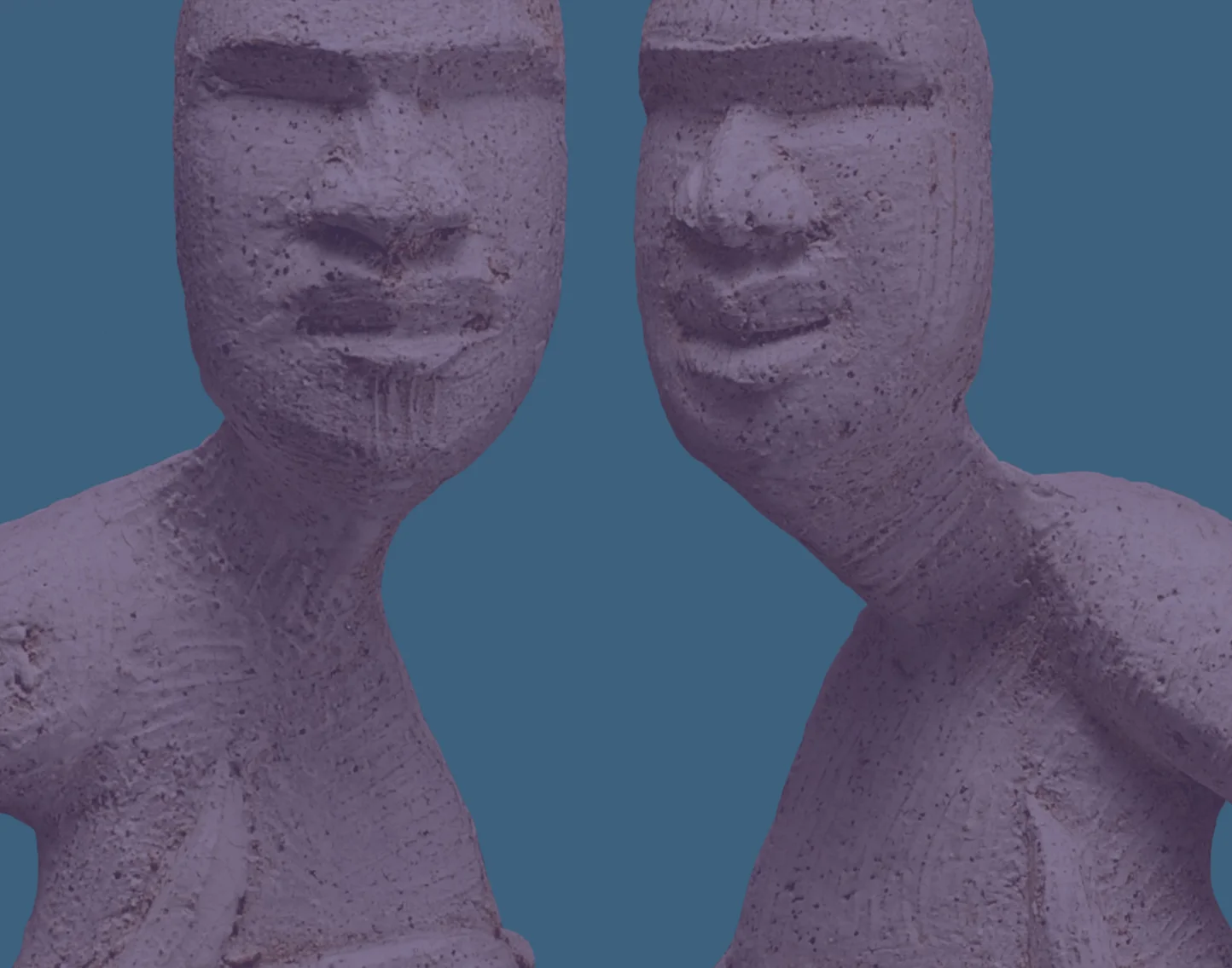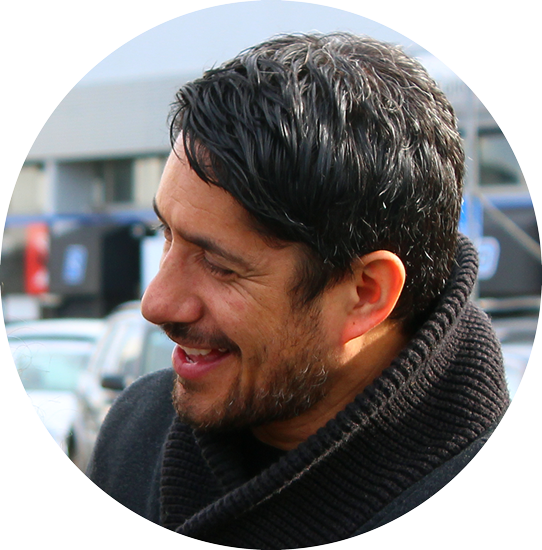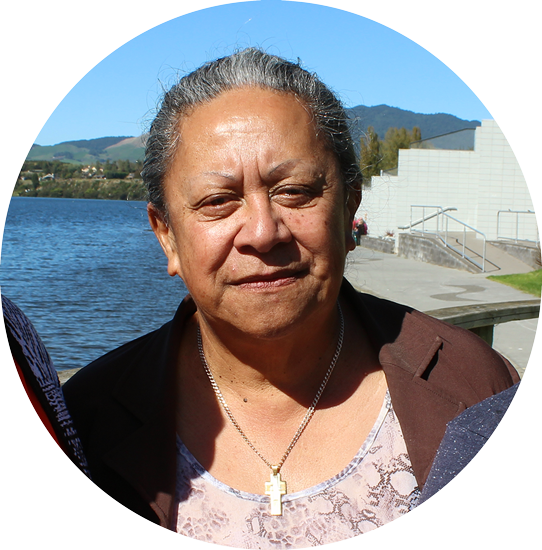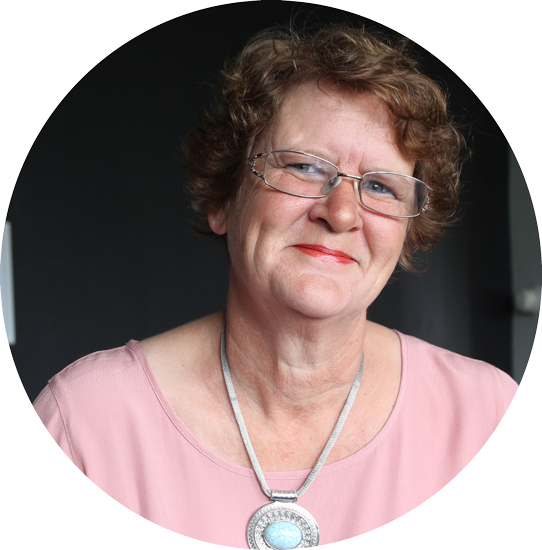








GROWING UP TAKatāpui: WHānau JOURNEYS
By Elizabeth Kerekere, Tīwhanawhana Trust and RainbowYOUTH
GROWING UP TAKatāpui: WHānau JOURNEYS
By Elizabeth Kerekere, Tīwhanawhana Trust and RainbowYOUTH
Mihi
He mana motuhake
Heke iho mai i ngā tūpuna
Heke iho i ngā kaumātua
Heke iho i ngā pākeke
Heke iho i ngā rangatahi
Tae noa mai ki ngā mokopuna
He koha tēnei hei awhi i a tātou
Takatāpui is a traditional Māori term meaning ‘intimate companion of the same sex.’ It has been reclaimed to embrace all Māori who identify with diverse sexes, genders and sexualities such as whakawāhine (trans women), tangata ira tāne (trans men), lesbian, gay, bisexual, transgender, intersex and queer. These are often grouped under the term ‘Rainbow communities’.
Being takatāpui is about whakapapa (descent from ancestors with sexual and gender fluidity); mana (authority and power to be who we are); identity (claiming all of who we are – culture, gender, sexuality and ability); and inclusion (unity across all iwi, sexes, genders and sexualities).
This resource was created to provide support and information for takatāpui rangatahi (youth) and whānau (family) who are struggling to talk to each other. We suggest reading this in conjunction with the print and film resource: Takatāpui: Part of the Whānau, the first in the series.
AUTHORS
Growing Up Takatāpui: Whānau Journeys was written by takatāpui leader Dr Elizabeth Kerekere (Founder/Chair, Tīwhanawhana Trust) in collaboration with takatāpui rangatahi leaders Toni Duder (Communications and Operations Manager, RainbowYOUTH) and Morgan Butler (Support Manager, RainbowYOUTH).
(Left to right): Morgan Butler - Tainui, Ngāti Tūwharetoa, Te Rarawa, Toni Duder - Ngāpuhi, Elizabeth Kerekere - Ngāti Oneone, Te Aitanga a Mahaki, Whānau a Kai, Rongowhakaata, Ngāi Tāmanuhiri
NGĀ MIHI AROHA
to all those who contributed to this resource especially takatāpui artist Paerau Corneal for the use of her
artwork Hinemoa Hinemoa (2011) and our funders: Te Ara Whiriwhiri, It’s Not OK and Te Puni Kōkiri.

Meet The Participants
Meet The Participants

Whakapapa: Where Did We Come From?
Whakapapa: Where Did We Come From?
Taonga Tuku Iho are the treasures passed down from our tūpuna (ancestors) – from traditional Māori society. From them we inherited te reo, tikanga and whenua (language, culture and land).
“I’m proud of my cultural heritage and my language and everything about being Māori... I just love that we have that connection to Papatūānuku and Ranginui. It’s just amazing”
Whānau: The extended whānau is the basic building block of Māori culture. It connects us to our hapū (sub-tribe), iwi (tribe), marae and whenua (land), wairua (spirituality) and tūpuna (ancestors). It is at the core of our identity as Māori. Whānau survival is ensured through the care of children and young people. This is why the word for child is ‘tamariki’ which stems from ‘tama+ariki’ meaning ‘little chief.’
“Always remember that your tamariki are the most important thing in the world. Never forget that, no matter what”
Accepting Takatāpui: Our tūpuna who had fluid genders or sexuality were accepted within their whānau long before Pākehā (Europeans) came to Aotearoa. We know this from mōteatea, waiata, karakia and whakairo (traditional chants, songs, incantations and carvings). The term takatāpui is hundreds of years old and has been connected to iwi in Te Arawa and the Wairarapa. Some iwi had no particular terms – takatāpui were just part of the whānau.
“Our people weren’t constricted in boxes. We didn’t have forms, we didn’t have signed contracts. We spoke the word. Our stories are passed down through waiata and karakia”
Balance Between Genders: Pre-colonisation, many parts of Māori culture were gendered, but the roles of both women and men were valued as essential for survival. The work and leadership of women sat alongside and equal to that of men. Sexual and gender fluidity were accepted as long as the work got done.
“
It’s important to not just call yourself takatāpui. To be takatāpui is to understand that queerness is not just a Pākehā thing”

Colonisation: A Never Ending Story
Colonisation: A Never Ending Story
Losing Voices: The colonisation of Aotearoa in the 1800s by the British had a huge impact on Māori culture and society. Colonial settler society made corporal punishment and child abuse commonplace.
Children and young people were to be "seen and not heard" so they began to lose their voice within the whānau. Their mothers were also losing their voices as Māori women were forced to submit to the British ideal of women in the Victorian era. Ideas of gender became constricted with so-called subservient Māori women and warrior Māori men.
“There were 100% no role models…It was silence and nothingness - like there was no possibility aside from heterosexuality and being cisgender [identify with the gender assigned at birth]”
Becoming Invisible: Missionaries and the puritans worked hard to suppress any expression of sexuality or gender fluidity. Takatāpui behaviour was hidden and takatāpui stories were erased, deliberately not translated or recorded. Because of this, these stories became forgotten over time.
“We never really grew up hearing the term [takatāpui]”
Becoming Illegal: As British laws and society became the dominant culture of Aotearoa, it became immoral to be anything other than heterosexual, cisgendered or monogamous. For almost a century it was illegal to be ‘homosexual’.
“Of course, there were gay people back in the day. If it was possible for us then, it should be possible for us to accept it more now”
The beliefs, customs and laws that the British brought to Aotearoa became vehicles to discriminate against takatāpui. Today, this has manifested as homophobia (against same-sex attracted people), transphobia (against people who are transgender, transitioning or gender fluid) and biphobia (against people who are bisexual or pansexual).
“The ideal to me is that each family, or hapū, iwi groupings have their own stories about takatāpuitanga. Actually ingrained from a very young age that there is a narrative and a story around what it means if you are a different sexuality or gender to the norm that is around you”
Forgetting The Past: While the whānau may still be a strong way of connecting to Māori culture, that culture may no longer accept takatāpui behaviour. For whānau today who often live without traditional Māori views and acceptance of gender and sexual fluidity, views about takatāpui in the whānau can take on the worst of colonial and Western culture: shame, silence and religious persecution.
“I think the Māori prejudice against this kind of behaviour [being takatāpui] comes from that they see it as unnatural. We’re forgetting to see it as a natural phenomenon”
“All of the cultural messages of trans women are real bad so it’s difficult to learn anything good about trans women or the idea that you can be a trans woman and not just be a weird joke”
“My cousin was beaten, belted. He was always cooking, cleaning. I remember my older cousin saying, “get outside and clean the hangi pit”. Yet they didn’t mind coming in and eating his beautiful kai he’d made. He could only hold his own for so long. Sadly, my cousin died in his thirties. And I truly believe it was through…dying inside…he was not nourished. He was not nurtured”
For Takatāpui Today: The negative impact of colonisation continues – especially for tamariki and rangatahi. Discrimination against their gender identity or sexuality starts early, both within the whānau and outside, where they live, learn, work and socialise.
“I know people that have taken the same path as me, but their families have rejected them. And over the course of time, I’ve seen the decay of their mental state and their body”
The Price of Forgetting: Instead of the strength of whānau support, takatāpui rangatahi can be isolated or made invisible. They can be the butt of jokes or even kicked out of home. This can lead to drug and alcohol addictions, unwanted pregnancies, depression, self-harm and suicide. Disconnection from whānau often leads to disconnection from Māori culture and therefore from Māori and takatāpui identity.
“Not feeling Māori enough because of whatever reason, it’s actually a tool of the coloniser for me to feel that way and to think that way. And it benefits the coloniser”
“I know people that have taken the same path as me, but their families have rejected them. And over the course of time, I’ve seen the decay of their mental state and their body”

Journey To Supportive Whānau
Journey To Supportive Whānau
LISTENING TO THE SILENCE
On One Side:
Often communication begins with what is unsaid. Whānau may have noticed changes in their takatāpui rangatahi but they feel disconnected and do not know what to do about it.
On The Other Side:
Takatāpui rangatahi may feel anxious, confused and reluctant to disclose how they are feeling to their whānau. They also do not know what to do about it.
Getting Up The Courage
Facing Our Fears: It can take a while for takatāpui rangatahi to tell their whānau about their diverse gender or sexuality for fear of a negative reaction. Common feelings takatāpui rangatahi experience include embarrassment, fear, isolation, guilt, depression, anger and hopelessness. Takatāpui experiencing these things are at risk of self-harming and suicide.
Embarrassment
“Transwomanhood means to be something embarrassing and funny and a little bit silly, goofy and dumb. It’s difficult to let your parents in on something that’s embarrassing”
Fear
“I think the first time coming out was the hardest because it was actually acknowledging out loud that you’re saying those words, you’re making them real”
ISOLATION
“Some nights I would just go to sleep and... think about all the things that my siblings could do that I couldn’t because of my sexuality. Such as bring a boyfriend home, you know, greet the whānau... just normal Māori stuff”
GUILT
“She would turn to me at random times and say, ‘please don’t be a lesbian, I want grandchildren’, which made me feel guilty about disappointing her and her plans for me”
SELF-HARM AND SUICIDE
“I showed [Mum] all my self-harm scars which are not visible and I just said, ‘I’m just letting you know that this is what it did to me on the inside. I’m not blaming anyone but when you are so flippant about my sexuality and my story and my feelings and where I’ve come from… This is not a casual thing. This has actually been a really, really hard thing for me to go through’”
DEPRESSION AND ANGER
“I got to a point where I felt like a volcano… I didn’t know what was going on, but I just felt unhappy and I felt depressed, angry and upset. Very angry. Not knowing who I was in terms of my own identity, I would spend a lot of time playing video games - ‘cause that was my way to escape”
AS THE TRUTH SETS IN
First Reactions: Finding out your children are takatāpui can be a surprise. You may struggle – even if you want to be supportive. You may not be proud of your first reaction but it is probably one shared by many other parents.
Common feelings for whānau include shock, embarrassment, denial, a justified fear for your child’s safety, and inner conflict. Grief can stem from the loss of the vision you had for your child’s future. You may worry that they will not have children or that you have lost a child when they transition.
SHOCK
“I was in shock. I just thought she’d make some guy a beautiful wife. But my love for her was always gonna beat that one”
“I never thought it was a gender thing because she never really displayed any clear signs – and that’s why it was a ‘hit by a train’ kind of thing”
EMBARRASSMENT AND SHAME
“There’s a little bit of ‘what will everyone else think of me and what will they think of our family’?”
“I was a patched gang member. When he first came out, my first comment was ’no comment.’ I was still trying to deal with it. I was a little embarrassed because my peers are all staunch men. I felt like I was hiding my son’s secret”
DENIAL
“Every time I tell someone, they go, ‘you don’t look like a lesbian.’ I always get upset – what are they supposed to look like?”
“We needed to just get it out, lay it all out on the floor and then process it”
“You know there’re so many cues you choose to avoid… and then when you make the decision that we have to move forward, they come up and they shine like big diamonds”
FEAR FOR SAFETY
“For me, the big factor was safety. You know? How’s he gonna live this life when so many people judge?”
“I didn’t react really well and I’ll tell you that I didn’t. It was my fear of what I’d seen when I was growing up. That was my biggest fear. ‘Oh my god, how can I protect her?’”
“Aunty was very religious. I was scared for [Morgan]. But in my mind, in my heart I’m thinking, ‘oh, yay! I’m not the only one!’”
CONFLICT WITH CORE VALUES
“The warrior culture that I come from says, ‘No way! No way!’ And I have to balance that emotion that comes up constantly inside me”
“I went around to some friends who were in the church... I cried and I said ‘I don’t know what to do’ because I was conflicted about the Bible”
GRIEF
“People just don’t know how to deal with their own personal grief. And sometimes you say things… really horrible things. And then when you look back at them later on… they were just things that you never should have said but that’s how you felt at the time”
“That’s the grieving that parents go through. And the behaviour … comes from that feeling. Most of the time people don’t really know what to do because you feel like your child has gone, but your child is still there”

Journey To Supportive Whānau: STARTING THE CONVERSATION
Journey To Supportive Whānau: STARTING THE CONVERSATION
Breaking the Silence: The sooner takatāpui rangatahi and their whānau start talking to each other, the better. Building good whānau communication includes patience, reflection, trust and love.
Patience
“It’s a personal journey.You can’t fast forward”
“Give parents a bit of space and time to readjust”
“Patience is the number one key thing that this process has taught me… Know that it takes time and understanding to get to the point where it’s okay… It does get better. But it gets better by you trying”
“Just keep talking about it. Keep opening up. Keep moving forward”
“When your child comes out as transgender, that’s not a journey you prepare for and some people struggle with that. Sometimes you have to cut your family some slack because it takes a while to get your head around it”
Reflection
“You know when you get a jigsaw puzzle and someone goes, ‘here you go, try and figure this out.’ The puzzle started coming together”
“Where do we get these principles from to judge? We say in our culture manaakitanga [generosity], whanaungatanga [connectedness], awhinatanga [help]. Aroha [love]. Isn’t that the strongest emotion in our culture? Why don’t we practice that?”
“As a mother moving into a very challenging area, I really needed to understand myself. And I think if you’re unsure of yourself you cannot help someone close to you”
Trust and Love
“If your moko [grandchild] comes out and says that she’s different or he’s different, you love that moko. You love them anyway. Don’t judge them”
“If you have that love for each other and you’re trusting… you’ll be able to get through it together.”
MEETING IN THE MIDDLE
Whānau As A Haven: Whānau support provides a place from which takatāpui can draw strength and resilience to help deal with the challenges they face outside the whānau. As the journey continues, good communication will lead to whānau and takatāpui sharing feelings of acceptance and pride.
ACCEPTANCE
“I didn’t find out Cam was gay until I went in for surgery for my son’s birth... He was crying, you know, hurt. I think my opinion really mattered to him at that moment. And I didn’t really care, I accepted it and we had a hug and a kiss”
“I shouldn’t behave like I’m Māori if I reject someone that I brought to earth. That’s totally wrong”
“I’m really lucky that there’s so much acceptance and... also there’s two of us. And, if our cousins or moko come out or anything it’ll be all good”
PRIDE
“I’m very proud of [Nathaniel]. Because the fact is that he’s taken on such a huge, big challenge. And I think his biggest challenge was really to get that across to me”
“We saw the spark in our baby from him coming out. [Cam] was very closed down, stayed locked up in the room. There was just something missing. And then when he come out, oh it’s made him the beautiful baby he is today. I’m so proud of him and of who he has become”
“This has been a massive learning curve for Emilie’s mum and I, but I’m really proud of the whole family. They recognise that she is a wonderful human being, who is fiercely intelligent, argumentative, and always happy to get a free ride home from a party. Nothing’s changed”

Where To From Here? Te Whare Tapa Whā
Where To From Here? Te Whare Tapa Whā
The Next Steps: In a world that discriminates against them, the health and well-being of takatāpui rangatahi is often overlooked, made invisible or directly attacked. Te Whare Tapa Whā is a model based on tikanga (Māori cultural values) and mātauranga (knowledge) that whānau and takatāpui rangatahi can use to navigate these challenges.
Te Whare Tapa Whā is the Māori health model developed by Professor Mason Durie (1984). The model is depicted as a whare (meeting house), which is made up of four taha (sides) representing:
Claiming Takatāpui Identity: One of the first steps towards uplifting the health and well-being of takatāpui rangatahi is the act of claiming takatāpui identity. This helps takatāpui rangatahi recognise that their diverse sexes, gender identities and sexualities are part of what makes them Māori.
“[Takatāpui] means that first and foremost, I’m Māori. Then I’m everything else but together I am everything I am. I am queer, I am Māori and I am tangata ira tane (a trans man). And I have this entire community backing me up whenever I use that identity”
“The diversity of Māori who hold this identity is I think really beautiful. For me, it’s a great word, because I don’t have to be specific about how I identify”
TAHA WAIRUA:
SPIRITUALITY AND
INTERCONNECTEDNESS
Trusting Our Tūpuna (Ancestors): Connection to tūpuna is one way that Māori access the spiritual support they need in life. For takatāpui rangatahi and their whānau, calling on those tūpuna helps on the journey.
“My Māoriness is about whakapapa and even if I can’t see it really clearly and I don’t have faces necessarily to put to those people, I can feel them 100% and they guide me. They lead me and they support me all of the time”
“Daily I ask my ancestors, ‘what would you do?’ And the answer always comes back inside of me, ‘you never turn your back on one of your own’. So I have to uphold the principles of my ancestors. I’m a hypocrite if I don’t”
Spiritual Reconnections: Gender identity and expression, sexual identity and being true to yourself are integral to being takatāpui. It is a part of your wairua. When that is trampled on through discrimination and rejection, the distance between takatāpui rangatahi and their whānau increases. Spiritual reconnection is a whānau responsibility.
“You understand but the emotional and wairua reconnection takes a while”
“Nothing has really felt right until takatāpui, because to me takatāpui is about whakapapa. It is about connection to a huge history and trajectory of whānau and of amazing people and communities who have always existed”
Taha Hinengaro:
psychological
and intellectual
well-being
On The Inside: Discrimination, isolation and fear of rejection from whānau takes a toll on the mental health of takatāpui rangatahi. It affects their confidence and their ability to be in the world, as well as their outlook on the future. It can lead to high rates of depression, self harm and suicide.
Right to Belong: To be Māori means being born into whānau, hapū and iwi. Creating a sense of ‘belonging’ however, relies on building connections and relationships. Whānau must ensure that takatāpui rangatahi know their inclusion is never in question, that they don’t have to leave parts of their identity at the door to belong.
“Being Māori means… you always belong somewhere no matter where you are or what you do. Everything you do in your life; you will always belong”
Beyond Acceptance: True support of takatāpui rangatahi means more than just accepting them as an individual member of your whānau. It extends to the partners they bring home, the friends they find and the Rainbow organisations and activism they may become involved with.
“We don’t want more suicides because of non-acceptance. That’s just not something that should be accepted in our society. Every child has the right to be accepted and loved for who and what they are”
TAHA TINANA:
PHYSICAL WELL-BEING
On the Outside: The care of tinana has particular implications for takatāpui rangatahi who may be born into whānau who do not support them or who suffer routine discrimination in other parts of their life.
Having Their Back: Whānau is the first and most important place of protection rangatahi have. In wider society, takatāpui rangatahi are likely to face violence and abuse in their lives because of their diverse sexes, genders or sexualities. They need to know their whānau have got their back.
“[The gang members] didn’t accept gays in general but they accepted [Cam] was gay. They never rubbished him, they never spoke down to him. They all just treated him how they treated him prior to that. But they stopped using homophobic words around me... ‘Cause I’d get upset.”
In Charge of Your Own Body: Takatāpui rangatahi with diverse bodies and gender identities often have negative experiences with health services. Takatāpui rangatahi may need to transition form the gender they were assigned at birth. For them, transitioning is an essential part of the journey to align their tinana with their wairua. However, the treatments and surgeries necessary for this are either very costly or not readily available.
“There’s been no hiding in our family. We roll as one unit and if you don’t like it - ka kite anō!”
Takatāpui rangatahi who are intersex are born with diverse bodies and sex characteristics which may not be 100% male or female. It is likely that they have already experienced unnecessary surgery as an infant. Throughout their lives, takatāpui with diverse bodies often suffer trauma and a loss of privacy in their dealings with the medical profession.
Healthcare Advocates: Whānau must ensure that takatāpui rangatahi receive the competent and affirming healthcare they are entitled to with as much privacy and sensitivity as possible.
“If you care about Māoritanga and you care about Te Ao Māori and all of our taonga and stuff, then part of that is looking after takatāpui and making sure that takatāpui are safe and nourished and have space to live and grow”
TAHA WHĀNAU:
FAMILY AND RELATIONSHIPS
Standing in Mana: Whānau is still the foundation of Māori culture and Māori society. It is key to the survival of takatāpui rangatahi. Whānau support contributes to building up the confidence and resilience of takatāpui rangatahi. Support from immediate whānau and especially kuia kaumātua (elders) helps them to stand in their own mana – to be strong in who they are and to face whatever challenges will come their way.
“You just wish that you could give a child enough confidence that when they walk out that door, their shoulders go back, their head goes up and they own it. And it’s their ownership that they take. Their mana”
“I feel like my job as a parent and my role in life is to be able to allow my children to live their truth. ”
“Parents must realise, you’re not losing face, you’re not losing reputation, you’re not losing mana. You stand by the one you made”
Facing the World: Having broken the ice to tell immediate whānau, takatāpui rangatahi now face telling the extended whānau and everybody else who matters. This is when whānau allies can step up to support them.
“That is the only difference between us aye? Is our sexualities. Nothing else. We’re still all people, we’re still all iwi, we’re still all whānau. Kotahitanga is how I see it”
“[My family] gave me the courage and the strength to be who I am. And to pursue who I believe I am and go out there in the world and not worry what people say, you know, don’t care about what people think”

Moving Forward Together
Moving Forward Together
IT MAY NOT BE EASY
“One Sabbath we were learning the lesson of ‘if you have not sinned, cast the first stone’. And I guess my whakaaro [thinking] had to go back to that. ‘Who are you to throw stones – whether it be your moko, your daughter or anyone – without looking at yourself first?”
“My advice is to take a big, big breath in. You need to ask yourself some very important questions. ‘Do I still want to have this connection?’ And if I do, we need to find steps to move forward. And if I don’t, we need to ask more questions as to why”
LET AROHA BE YOUR GUIDE
“Children are the most important thing. They are our biggest gift. It wouldn’t have mattered what [Morgan] came out as. You know, because it was the love that I felt for her. For parents out there that don’t have family that have come out before, it’s safer now than it was back then. And don’t hide behind your fear… Bottom line is, they’re our gift. We need to embrace them and love them regardless of what they are”
“The journey is different for everybody but I hope that we all end up in the place of acceptance and love because if you do that, it’s better for everybody, including your own heart”
“Love conquers all I think. If you genuinely love someone, nothing should matter. My love for [Cameron] conquered everything that I was facing. It’s unconditional and that’s what got me through it”
DON'T GIVE UP!
“It’s going to be okay, it’s really going to be okay because what you’ll have is a happy person. Trust in that”
“We’re on this journey and we’re not going to abandon it. Don’t abandon who you made. Don’t make life miserable for you and your offspring. You know, handle it”
SEEK MORE INFORMATION
“Having more resources about takatāpui is a great start… I know that when I was trying to explain gender and identity to my Mum or to my eldest cousin, they wouldn’t have it. So having things that can inform our whānau so we don’t have to. Because sometimes it’s not safe”
“My Mum went out of her way to research and understand exactly who I was and even though that took time, it’s gotten to the point where it’s amazing”












































